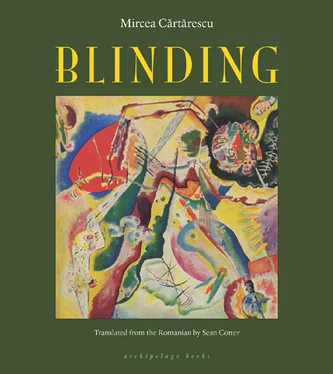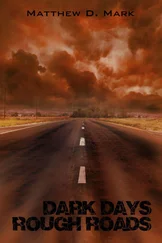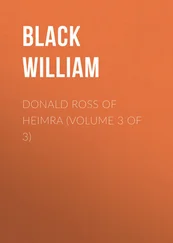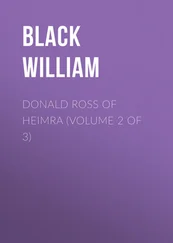I was standing just beside the sad face of a stone woman, a winged woman five times my height. A quarter of Bucharest was filled with her stone feathers. The cupolas had scales, like moon-creature eggs. All the flora, fauna, and demonology of this sight fluttered in petrifaction, black with pinkish flashes against the low, off-white sky. In the face of the statue I leaned against, I recognized my mother. When, in the silence of a winter night broken by lonely buses, one of the eggs in the limestone garland on my roof cracked dryly open and a translucent fetus, as big as a dog, wiggled out, twitching its wet and eyeless head, and when the jugular vein in the statue of my mother began to pulse, I ran toward the opening where I’d emerged and rushed down about ten floors before coming to one I recognized. I was in front of the familiar door of my parents’ apartment, on Ştefan cel Mare, where I had left a few hours before. My father opened the door. I took off my boots and my snow-wet hat and scarf, and took refuge, as usual, in my room. I took the packet from my pocket and returned it to the bottom of the bag, beside the documents. I hid the bag again behind some linens. I stripped down in front of the mirror. What a strange animal I was! My triangular head, like a snake’s, was transformed now by the terror of statues and cupolas that still reflected in my eyes. My heart was almost visible in the network of blue veins in the skin of my narrow torso. Between my thighs, my sex, already thick from the erections of so many painful nights, veered from childish pink toward dark brown. The hair on my thighs was growing thicker. I turned my back to the mirror and looked over my shoulder. My vertebrae rose like little white hills beneath my skin. On my back, as far as I could see, the triangles of my shoulder blades were so apparent that they looked like two thin discs, one on top of the other. My buttocks were round and heavy, like a girl’s, and the space between them was dark with hair, like a thick line of ink. I was obviously an animal, a fragile mechanism of organic material. I could not understand how I was able to make my skin and muscles move. I focused all the powers of my spirit on my fingers and commanded, “Move!” Nothing happened. It was like I had told a glass to slide across the table. How could I put one foot in front of the other? How could my pancreas and pituitary gland secrete their juices? How could sperm be born in my testicles and sounds in my ear canal? I passed my hands over my entire body and still did not understand how I could be just this assemblage of bones, cartilage, and skin and nothing more. I stuck out my tongue as far as it would go. I made wild movements with my hands. I pretended to be catatonic, trying to imagine how I looked from outside myself, from a meter away. Or I would wonder what it would have been like to not be born a person, but a bug or a plant, to live without realizing I was alive … After I got tired, I put on my pajamas and sat at the window, on the bedstead, to watch how the snow fell on the street. The sharp elements of the heater burned the soles of my feet.
AFTER evenings like this, which had become the atmosphere of my lonely and frustrated life, after my mole-like wanderings along the continuum of reality-hallucination-dream, an inextricable triple empire, I would fall onto my bed and take a book at random from the pile on the floor, beside the bedstead. I would read almost all night. Books came at the right moment, mysteriously, as though they were pieces of a puzzle, of an image that was clear yet incomprehensible, incomplete, a kind of superbook at the threshold of books and my mind. I read deep into the night, the silence ringing ever louder, and sometimes a bug would buzz into the lampshades, burning itself on the hot light bulb. A truck would shake the windows. I began to blink more and more, faster with the right eyelid, more reluctantly with the left. I remembered nights when I would have to press my eyelid closed with my fingers to fall asleep, and days when only half of my face would laugh, while the other half stayed sullen and sinister. Now, when I blinked quickly, the orbicularis muscle of my mouth twitched and bothered me, and when I was tired, a cold sweat spouted from the pores of my left cheek. I tried looking at the image of the room with a single eye. With my right eye, the room looked bright, and the colors shone obediently one beside the next. My left eye, however, saw a strange greenish cavern, where wet forms oscillated like the skin of an underwater animal. By the end of the night the books’ meanings would completely evaporate, and I would be in the embrace of their thin pages, their incomprehensible cabalistic signs, and the scent of their dusty paper, the most stimulating scent on the planet. My two cerebral hemispheres contracted with pleasure in their bone scrotum. Half asleep, I spied on the books with the passion of a voyeur. I would rip a page’s corner to see the threads of puffy texture, pick at the wound of a torn binding, or watch, for as long as half an hour, an insect crossing the enormous field, from its home in Dostoyevsky’s “The Double” or Everyman’s Physics .
From its miniscule black body, the insect projected six transparent legs, each with a dark spot at the end. If you concentrated, you could see that its antennae, also translucent, were constantly shaking. It patiently traversed the hills and valleys of cheap paper, buried itself in between the pages, and appeared in the yellow, glistening light again, without giving any thought to the complicated mental processes of Goliadkin or to the black letters, bigger than its own body, which encoded his insanities. Hard little barbs kept it anchored to the book, to the universe where it was born. You could blow as hard as you liked, but you wouldn’t knock it off. It would, though, stop for a moment to weather the hurricane, pressing its stomach to the thick mat of the paper, and then it would go on, with steady and satisfied steps. No one could take it from its homeland, where it appeared and where it would die, turning into a dry shell at the base of a page. It might bite, from time to time, into a black or white piece of woven fiber. It would stick its ovipositor into the dot on the “i” in Goliadkin and leave a cylindrical tube with a small embryo inside. It did not know that its world meant something, that it could be read — it experienced its world, and that was enough. Maybe Goliadkin, or I, whose eye like a billion suns approached, was this insect’s God, but its nervous ganglions barley managed to keep it alive. I was a God that had not created it and could not save it. I was eternally unknown and indescribable.
Then suddenly I would feel someone watching me. I would shiver all over, leap up and go to the window. I saw the stars scattered over the city. Someone, deep inside another night, of another kind, held my world and followed, with amusement, my progress over its twisting roads, blowing loneliness and evil from its mouth like tongues of black fire, and I hung on to my life, spreading sticky viscera over the page. What book might I be in? And what kind of mind would I need to understand it? And if I could, wouldn’t I be disappointed to find I was living inside a cheap, licentious little book, or a train schedule, or a coloring book for children, or an abject anonymous letter, or a roll of toilet paper?
I closed the book over this being, miniscule but just like me, a body full of organs like mine, cells whose protoplasm accomplished the same billion chemical maneuvers per second, and I turned out the light at exactly the moment dawn began to whiten the window. I curled up and pulled the blanket over my head, leaving just a narrow gap where I could breathe. That was how my mother slept, mummified in the fetal position, and that was how I had slept, too, for as long as I could remember. But I was always afraid to fall asleep. Where would my being be for so many hours? I might go somewhere I could not come back from, or I might return transformed into a horrible monster. The rupture of my self’s continuity made acid churn in my solar plexus. The idea seemed unbearable — that I dissolved, night after night, into a terrifying jungle, one that was inside me, but that was not me . What would I do, descending further and further into the catacombs of the imagination, if I penetrated its depths and found myself among horrific, blood- and sperm-splattered idols of archetypes, the instincts of hunger and thirst, the gag reflex? And what if I did penetrate this zone, what if I I sank into the somatic, what if I twisted around kidneys and vertebrae, suffocated by cells that were growing hair and nails, hugged by the peristalsis of my innards? Anything could happen: the mechanism that wakes you up could break, like on one spring morning, when I opened my eyes in a room flooded with light, fresh and full of life, and I realized I could not move. I was completely paralyzed. I tried to get up. I commanded my fingers to move. I didn’t know, I did not know how to do it anymore. The light dwindled to a few folds of the blanket, a piece of flowered fabric, a flash in the mirror. It lasted no more than a minute, and then my body returned to my possession, and the hypnologic rebellion was over.
Читать дальше












